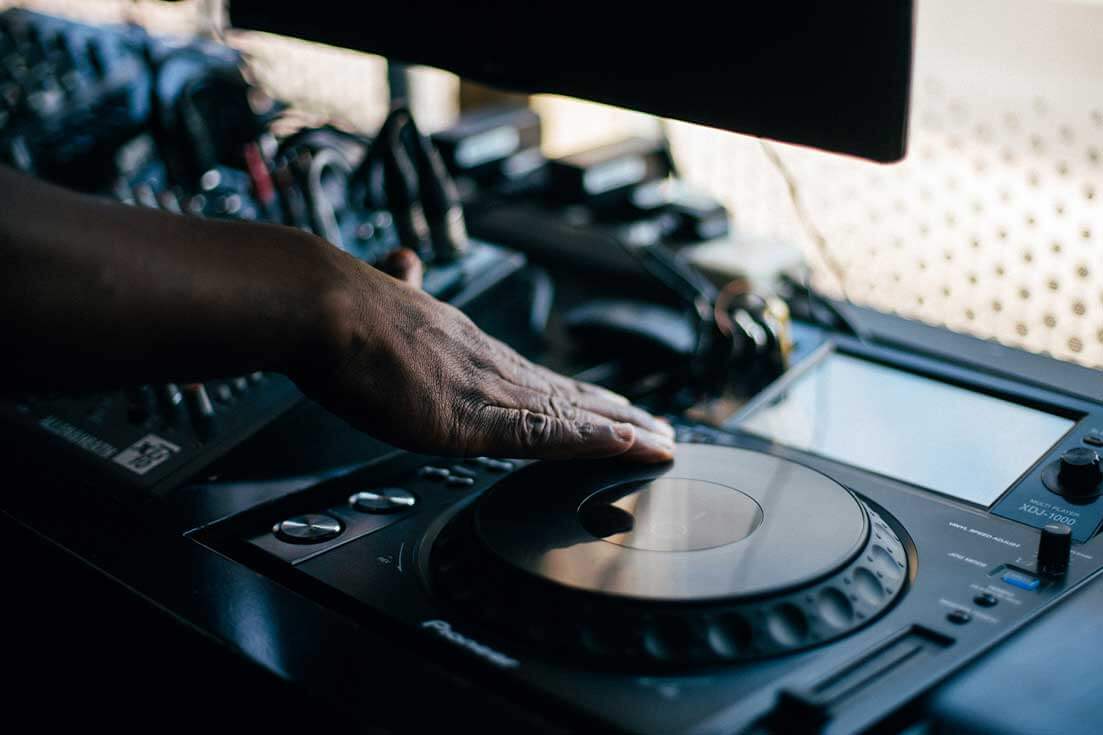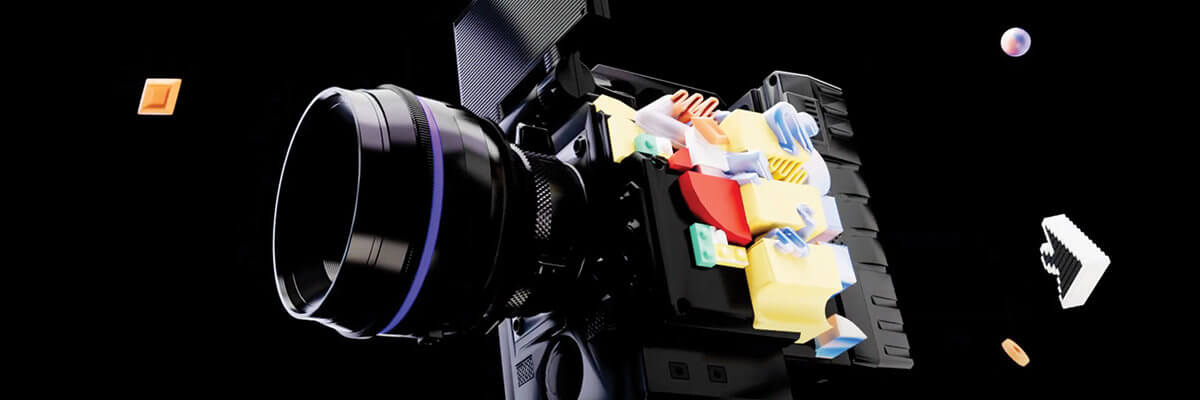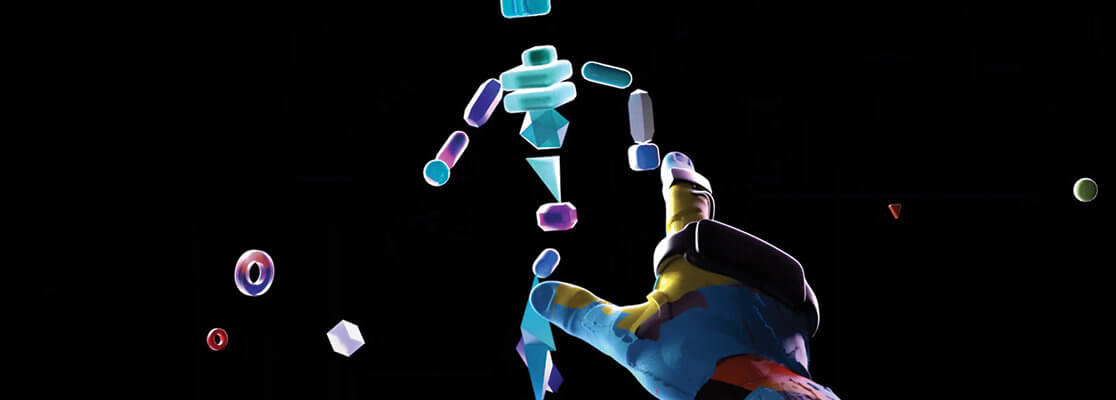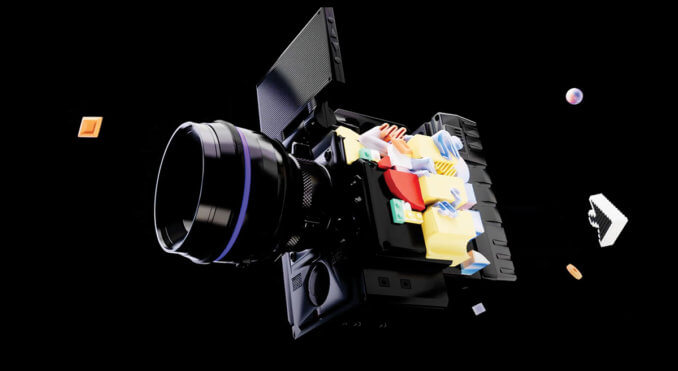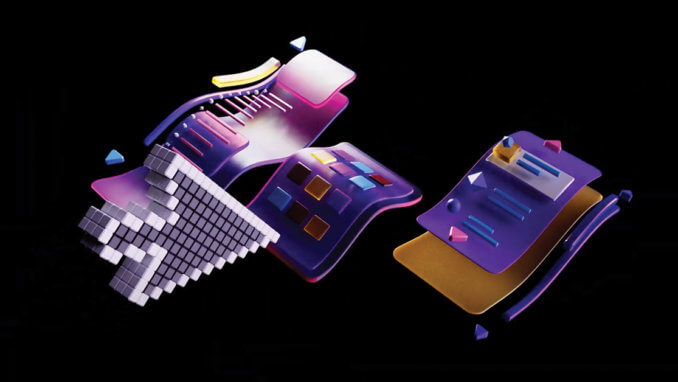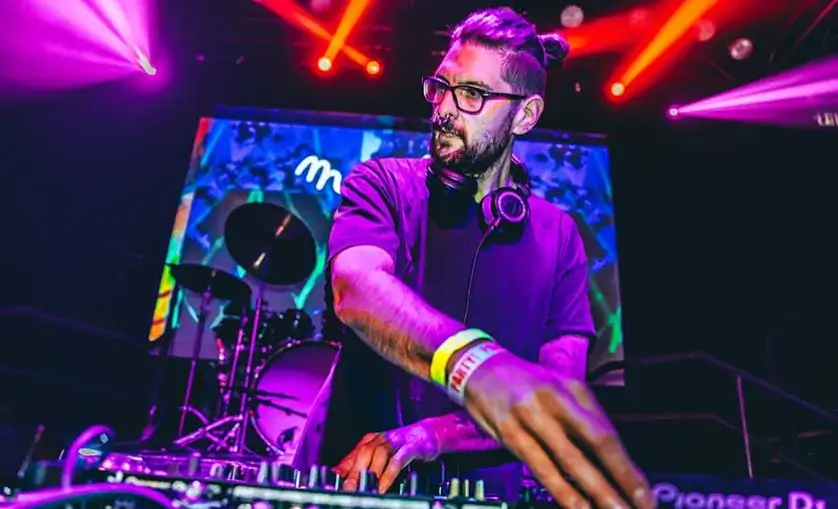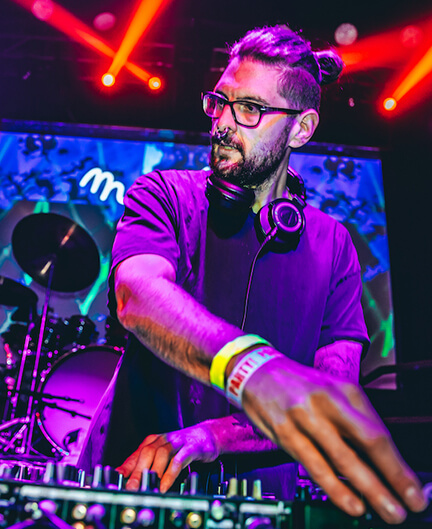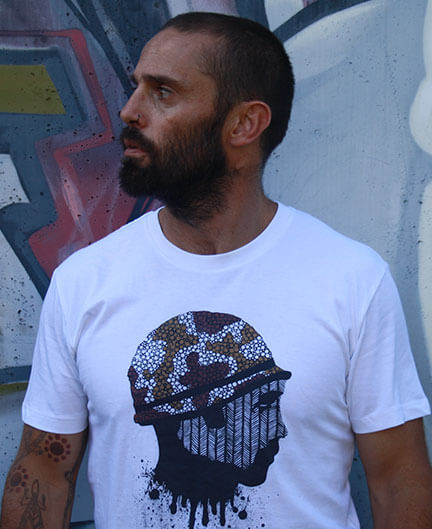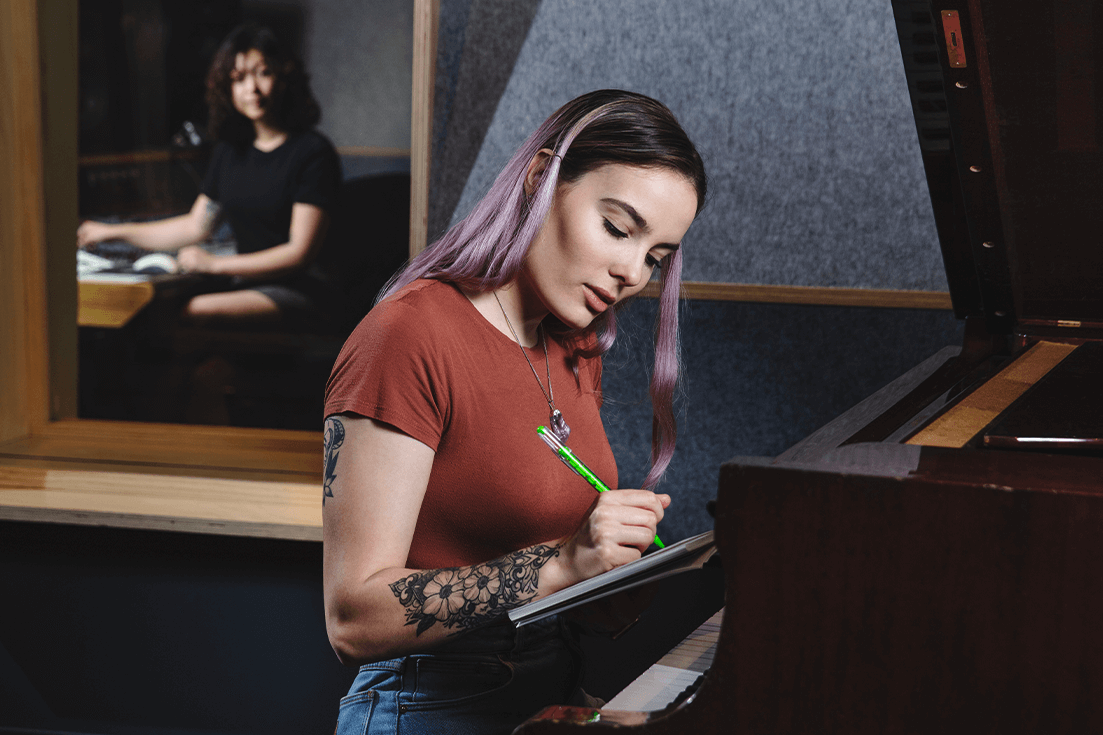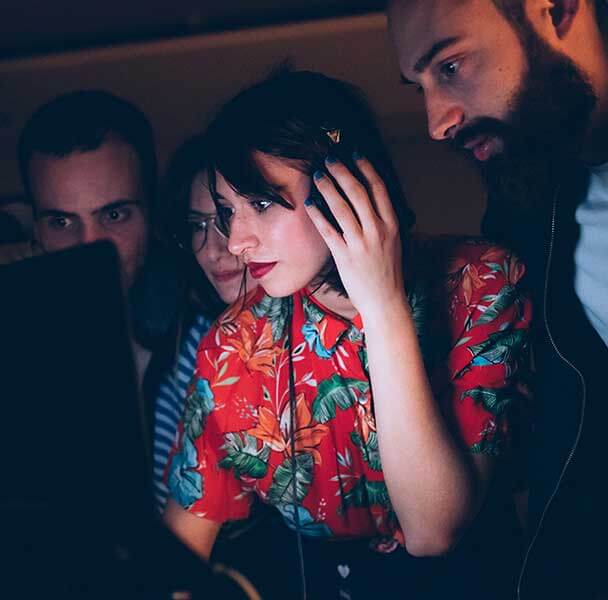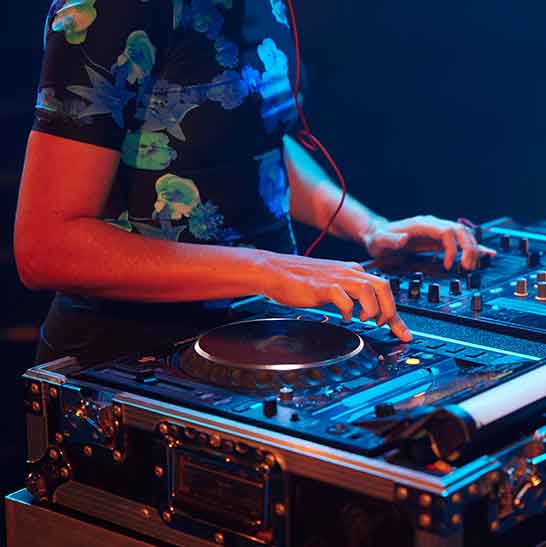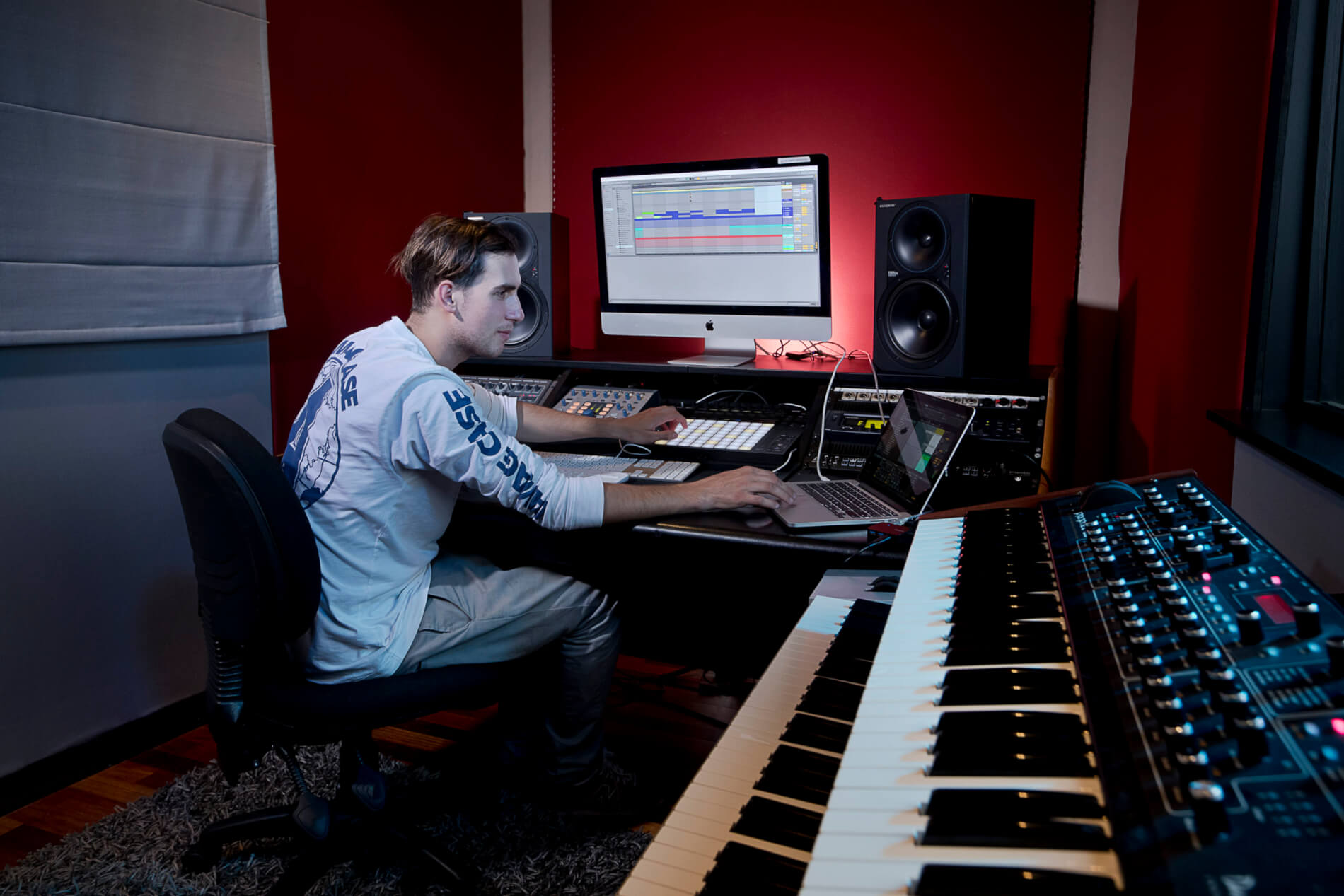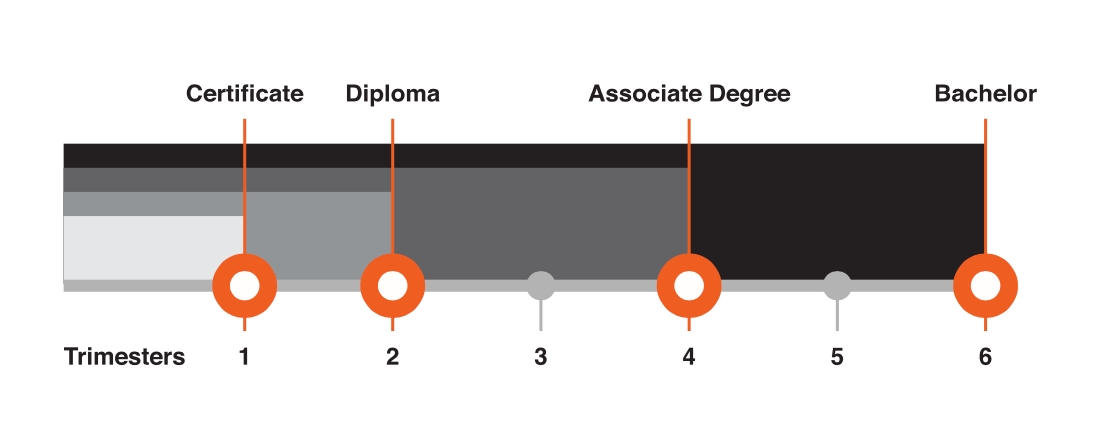Bachelor of Music
Do you see yourself on stage in front of thousands?Producing beats and EDM hits?
Working in a studio producing records? Building and designing your own live events?
Then studying Music at SAE is where you need to be.
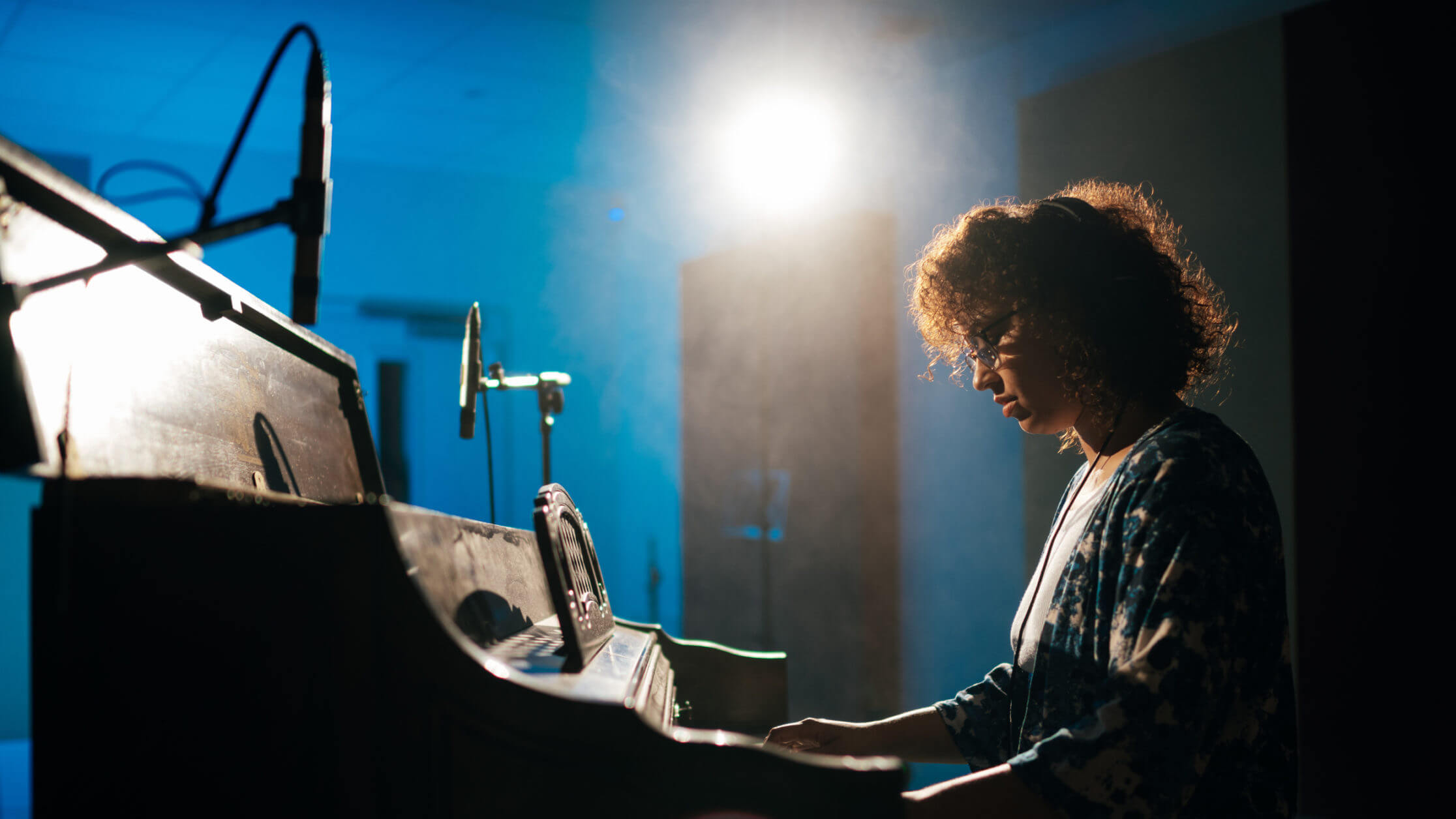
Units x Costs ($AUD)
4 x $3,807
18 x $2,728
1 x $5,456
Indicative Annual Course Fees*
(based on 1.0 EFTSL)
$26,140 AUD Year 1
$21,824 AUD Year 2
$21,824 AUD Year 3
Plus Student Services and Amenities Fee (SSAF)
Indicative Total Course Fee*
(based on 3.0 EFTSL)
$69,788 AUD
Plus Student Services and Amenities Fee (SSAF)
* The Indicative Total Course Fee & Indicative Annual Course Fees reflects that students are charged fees on a per unit basis and the fee for a unit may increase.
For more information view the SAE Fee Schedule or visit the Fee & Payment page.
Units x Costs ($AUD)
4 x $4,439
18 x $3,178
1 x $6,356
Indicative Annual Course Fees*
(based on 1.0 EFTSL)
$30,468 AUD Year 1
$25,424 AUD Year 2
$25,424 AUD Year 3
Plus Student Services and Amenities Fee (SSAF)
Indicative Total Course Fee*
(based on 3.0 EFTSL)
$81,316 AUD
Plus Student Services and Amenities Fee (SSAF)
* The Indicative Total Course Fee & Indicative Annual Course Fees reflects that students are charged fees on a per unit basis and the fee for a unit may increase.
For more information view the SAE Fee Schedule or visit the Fee & Payment page.
Complete your course faster by studying units across 2 years (6 trimesters).
Complete your course faster by studying units across 2 years (6 trimesters).
Complete the study units across 2.5 years. (8 trimesters).
Whilst still classified as a full-time study load, you will complete course units over a 3 year period (9 trimesters).
If you want to take a little longer, that’s ok too. We’ll help you work out the best study load to suit your needs.
Note: Part-time is not available for international students.
February 2025
May 2024
September 2024
May 2024
September 2024
February 2025
May 2024
September 2024
February 2025
May 2024
September 2024
February 2025
May 2024
September 2024
February 2025
May 2024
September 2024
February 2025
BACHELOR OF MUSIC
Choose the Bachelor of Music and you’ll build all the essential skills for creating a successful career in today’s modern music industry. You’ll learn and apply theoretical knowledge and best practices while accessing studios with cutting-edge equipment.
You’ll gain proficiencies in songwriting, composition, music business and industry, stagecraft, recording techniques and electronic music production and studio music production.
Building on the core skills of a working music professional, the Bachelor of Music at SAE is completely unique and allows you to either choose from a pool of electives and complete a Bachelor of Music or dive deeper and specialise in one of four different pathways.
Songwriting and Music Production
For emerging songwriters, music producers and composers. Students will further specialise in songwriting and composition for screen media (films or television) and video games, develop scoring and notation skills and learn advanced studio production techniques, including mixing and mastering.
Electronic Music Production
Interested in refining your electronic music production skills? From various EDM genres, to Hip Hop and Electronic Pop music, gain a deeper understanding of digital mixing, mastering and sound design, sampling, synthesis and programming and various contexts for music making including live applications.
Music Industry and Business
This one is for students interested in the business side of the industry. From artist and event management, to music exports, legal frameworks and entrepreneurship. Develop a deeper understanding of the dynamic and ever-changing music industry and drive the success of your own business ideas along with key creative collaborators.
Creative Musicianship
Dream of being a working musician? This specialisation is for students interested in pursuing performance as a career. Defining your creative identity and brand, developing stagecraft and further exploring collaborative music making through innovation and improvisation. You’ll also get to explore current and emerging modes of music making through various instruments and technologies.
The Bachelor’s degree allows you to further develop your specialisation skills and prepares you for entering into the industry. Your growth and development as a creative practitioner will be assessed through the completion of industry-based projects and work placement. This will ultimately help you build a body of work and portfolio to share with potential employers or your first client.
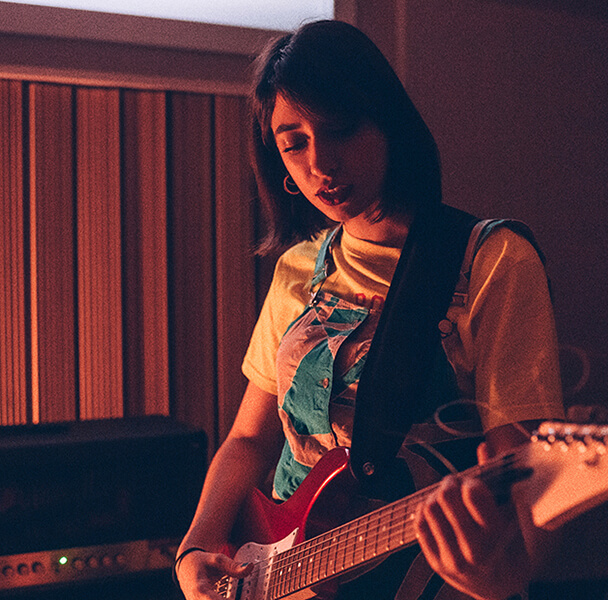
Career Outcomes
What jobs will this course lead me into?
- Songwriter
- Music Producer
- Artist Manager
- Artist / Musician
- Live Musician
- Studio Musician
- DJ
- Electronic Producer
- Content Creator
- Music Entrepreneur
What our students say about SAE
Why study a Bachelor of Music at SAE?
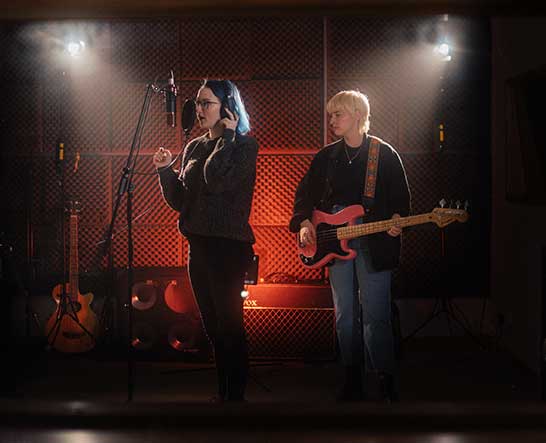
You'll be learning on industry leading equipment and software
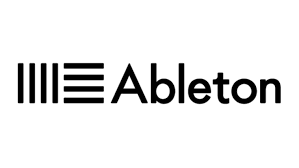
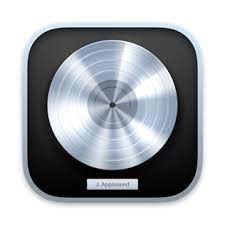


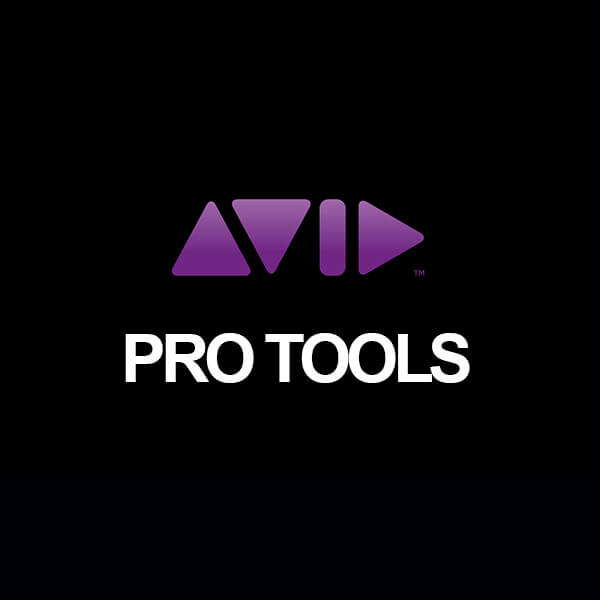
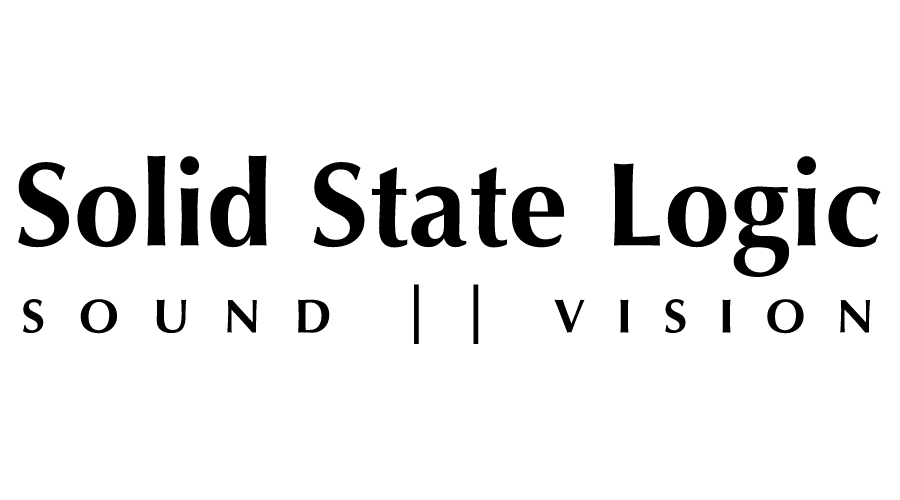

YOUR CAREER IN MUSIC BEGINS NOW
What you'll learn


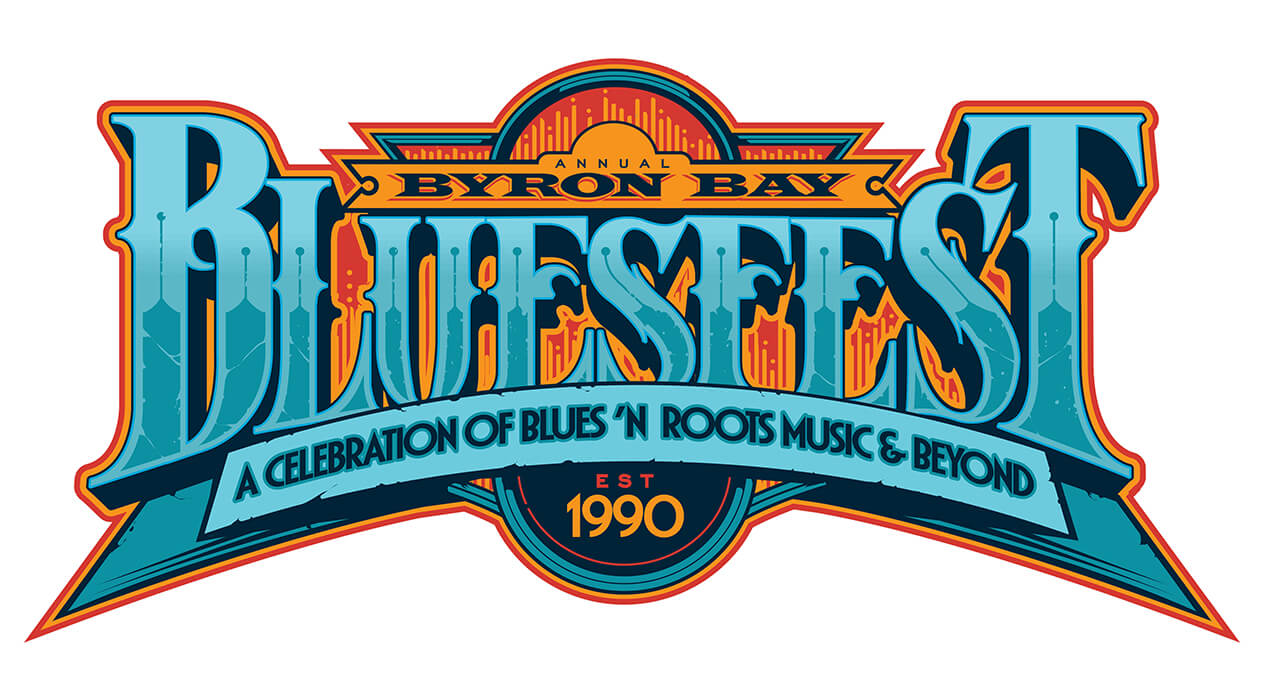
Course Structure
The Bachelor of Music is broken up into three distinct stages, each designed to develop different skills. The Bachelor of Music at SAE is completely unique and allows you to either choose from a pool of electives and complete a Bachelor of Music or dive deeper and specialise in one of four different pathways. The Bachelor’s degree allows you to further develop your specialisation skills and prepares you for entering into the industry through your major project and portfolio and work placement.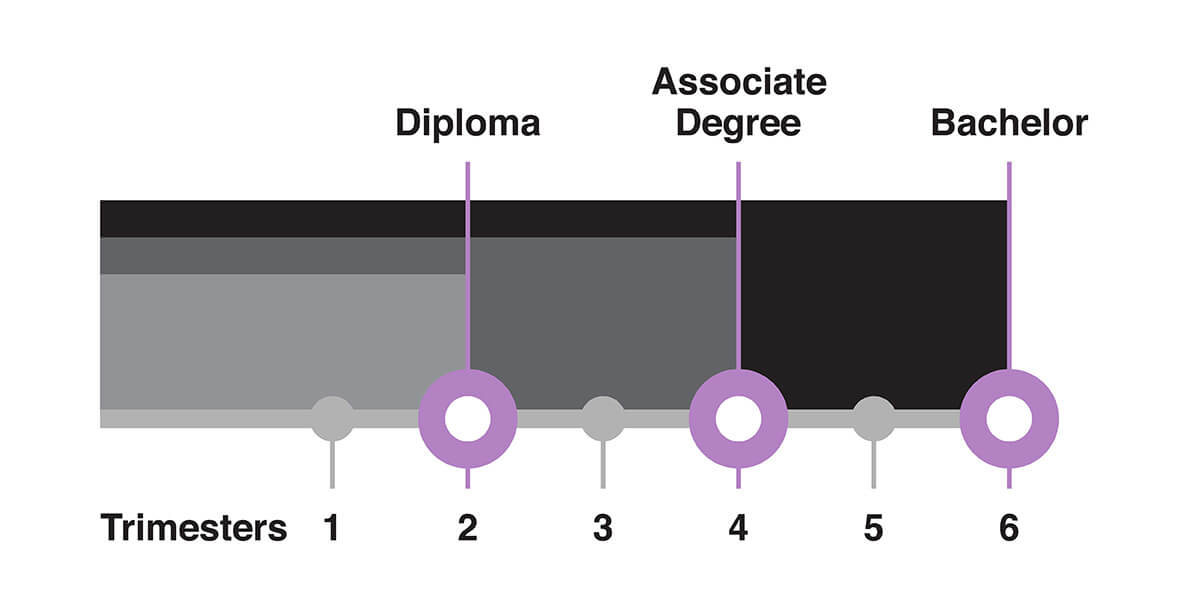
Thinking about Audio will introduce you to creative and scholarly thinking in your discipline. By examining leading thinkers and movements in your discipline, you will develop an understanding of key practical and transferable skills that will enable you to develop a deeper understanding of the learning process, research, and the nature of creativity and scholarship. This forms an essential foundation for your studies and your future career by fostering your skill as an independent learner and reflective practitioner.
This unit will help you develop foundational skills for composing music and lyrics effectively, and effectively and communicating musical concepts in different forms. You will learn to identify, employ and communicate music theory concepts including rhythm, harmony, melody, notation, structure, form, texture and genre, for application in your own creative work. Through iteration, peer review and mentor feedback, students will develop their songwriting skills through the development of several projects culminating in several pieces of music that form the beginnings of a portfolio of works.
This unit introduces you to core skills and concepts of electronic music production. You will work on a range of music projects to develop skills in recording, sampling, sequencing and synthesis. You will develop your abilities across contemporary tools and technologies to produce original music in a DAW using a combination of MIDI and audio manipulation. You will also learn how to produce a variety of sounds to satisfy a brief and add effects to enhance the sonic qualities of your productions.
This unit introduces you to core skills and concepts of studio and analogue music production. Across a range of projects, you will develop skills around microphone techniques, analogue signal flow and engineering techniques, recording and mixing. You will develop your abilities across contemporary tools and technologies to produce original music in a DAW using studio production techniques. You will also learn how to produce a variety of sounds to satisfy a brief and add effects to enhance the sonic qualities of your productions.
This unit will introduce you to the mindset and skillset of the creative entrepreneur, and transform your approach to problem-solving. You will analyse historical and contemporary models of leadership and best practice in entrepreneurship, and use tools for project design that include ideation, problem framing, and pitching. The skills in this unit will assist you in developing your creative thinking, exploration, and experimentation methods, allowing you to experiment with project design and content for creative media.
This unit introduces you to the concepts of stagecraft, live music performance and musicianship, production design and the technology used in live-sound production. Musical artists often play a leading role in designing and executing live performances of their music. Live music is both a major source of an artists income as well as a branding and marketing event. Additionally, live sound experience, skills and knowledge can open up regular, well-paid work within the music industry.
Designing and producing a live music performance plays an important role in engaging audiences and creating entertaining experiences. Visuals, costumes, props, lighting and stage design can all contribute to successful music performances and developing these skills in addition to technical audio skills will provide you with a broader range of professional skills. Repertoire, musical arrangements and genre conventions are some of the skills employed by musicians in developing their musical works.
In this unit you will be given opportunities through the project design to collaborate with students from other disciplines and through analysis and planning the unit will culminate in a live event of your own design.
Understanding musical genres is a core skill for successful songwriters and music producers. This module builds on your knowledge of music with a focus on musical genres and styles, genre structure, texture, melody, harmony, and rhythm, as well as aspects of history and social connections.
Knowledge of musical genres is developed through a broad range of activities and projects incorporating analytical listening, transcription, group performance and composition within the specific genres.
In Music Studio 1 you will learn the professional application of a range of songwriting and music production techniques. This includes working with other producers, writers, performers and external musicians to produce a recording, contributing to a sample library, remixing an existing track and working to a commercial client brief. These activities will require you to be adaptive, respond to challenges, solve problems, be self-directed and successfully communicate with others. Through working in these applied contexts, you will deepen your knowledge of songwriting and music production, so that you can respond creatively to a fast-turnaround brief.
In CIM210 you will be working on interdisciplinary projects that relate to some of the most important concepts in contemporary media production. You will learn practical and analytical skills in order to help you develop your creative powers and meet briefs that take you out of your comfort zone. You will need to bring all of the skills you have learned so far: technical skills, research skills, communication skills and a growth mindset, and be prepared to encounter new concepts and new ways of working.
Media and culture are not simply entertainment, but something that affects the “real world”, our everyday lives, and our worldviews. As such, we will not ask whether media accurately reflect the real world but instead ask how media shape, reinforce, and challenge power structures that influence our understanding of the world and ourselves. This unit takes a ‘critical theory’ approach to analyze media and culture. In this unit, you will explore media texts, contexts and meaning, society and subjectivity, pop culture aesthetics, and critical cultural discourses that inform creative media practices.
Drawing on a range of creative content and analytical frameworks, you will be encouraged to develop ways of thinking about media and culture that demonstrate a broad awareness of aesthetic principles and stylistic trends; subjectivity, agency, ethics, and relations of power; contexts, disciplines and discursive formations. In support of this exploration, you will produce a range of media artifacts that explore and contextualize the relationship of media to culture through individual analysis, collaborative and interdisciplinary creative practice, and critical reflection.
Using social media and digital content effectively is crucial for creative media professionals. In this unit you will develop an understanding of what constitutes social media, the activities that it consists of and how creators and audiences connect, collaborate, create, and share content. You will link this understanding with concepts of digital marketing, formulating strategies for social campaigns with a range of content across platforms. These skills will assist you to determine how social media can be utilised in your professional practice
With your facilitator acting as your project manager, mentor and colleague, this studio module will further develop your songwriting and music production skills through a variety of creative projects. Topic areas will include writing for visual and multimedia, music for advertising, writing to a brief, mixing and delivery, critical listening and aural and music skills. You will apply your new skills in a variety of contexts in projects that may include writing music for screen media, topline writing, remixing and reharmonising existing works, music for advertisements and sonic branding.
Responding to briefs in collaboration with your peers, you will work towards established project milestones in your songwriting and music production projects. You will adhere to a planned schedule and demonstrate professional practice throughout the trimester. This process includes focus on the creative, technical and managerial aspects required for a completed music project. You will also have the opportunity to contribute your songwriting and music production skills to an interdisciplinary project, collaborating with students from another discipline. Your finished work will be exhibited in an authentic context.
Musicians engage with their communities in a variety of ways. Often engaging with the community in a holistic, 360-degree fashion is essential to carving out a niche within the industry and developing a long and successful career. Musicians themselves exist within a community including audiences, business partners and other stakeholders, and the community as a whole.
This unit builds on previous studio units in developing your awareness and understanding of the practicing musicians place in, and effect on, the larger community.
Throughout this unit, you will investigate relevant emerging technology such as NoCode, Augmented and Artificial Intelligence, and Machine Learning as they relate to your creative practice. You will have an opportunity to explore topics such as digital literacy, AR/VR, mobile delivery, digital folios, e-commerce, social media, and digital teams.
You will also experience discipline-relevant emerging technologies, including audio and video based applications, locative media, visual and open-source programming principles, and AI-driven multimedia - depending on your interests and chosen creative media specialism.
As a creative practitioner, your ability to engage in interdisciplinary creative activity will transform your approach to media creation. In this unit you will use your various media skills to create multi-sensory approaches to real experiences for audiences, crafting work that allows your audience to feel, see, hear and experience something different.
You will develop skill and understanding of what interdisciplinary collaboration involves, how immersive experiences and the experience economy works, and the steps to take to create a physical multimedia experience. You will focus on practical elements including projection mapping for spaces and video mixing, audience engagement through sensors and triggers, audio integration, and the stages of planning, marketing and execution of an experience for a defined audience and client.
You will also be challenged to apply your discipline skills in new contexts using remote practice, digital communication, cross-discipline collaboration, and creative marketing.
The transition from study to work is an important step for you as an emerging professional in the creative industries. Work Integrated Learning provides you with a professional experience opportunity that both complements and further deepens the skills and knowledge you have gained from study. Throughout your studies you have had to learn on the job (in projects), focus on building strong relationships with people, develop strong communication skills, and use a range of transferable skills. During your work placement you will put this knowledge and skill set into action in a real-world professional workplace. This is a valuable opportunity to gain experience in a professional setting and further develop your job-readiness. The Work Placement requires a minimum of 80 hours at one or more host organisations. Both the student and the host are required to complete an SAE Agreement that formalises the placement. Work placements can only commence after Stage 1 of your Bachelor course has been completed, and only upon successful completion of CIM151/ CIE152 and approval from the local Industry Liaison Coordinator (ILC). If approved by your ILC, you may undertake a work placement before official enrolment in CIU310/CIM310, and ‘bank’ the work placement hours.
The Work Placement Handbook outlines in detail the assessment tasks and obligations of students and hosts. Attendance in this unit also includes a minimum of nine hours of class time for the delivery of unit information and development of documentation. All elements must be successfully completed to the defined standard to receive a Pass.
The aim of this unit is to enable you to develop your project ideation, pre-production planning and implementation through the investigation of media culture, pitching, research methodology, aesthetics and audience impact, within the pre-production process of an interdisciplinary creative media project.
Major Project Development forms the first component of your Capstone Project. In this unit, you will work in groups to conceptualise, plan, design and iterate a full-scale creative project's development, pre-production and early production stages. Your project will be designed for an identified target audience and market. The final execution of the project will take place in the Capstone Major Project Production unit, and once complete should meet professional publication standards.
As part of the mentorship component of this unit, you will be assigned a mentor from the creative industries. This mentor will help nurture, inspire and guide your work, providing an industry context that will inform your creative and business perspectives, especially regarding the development of your capstone project and your entry into the workforce. Throughout your mentorship program, you will engage in a structured reflective practice focusing on your artistic processes, project and career goals, business development processes and expanding industry awareness.
The aim of this unit is to introduce you to the core business structures, management frameworks and marketing strategies used by contemporary creative professionals. You will discover the key behaviours and practices of successful creative business people and the business principles they implement – strategies you can use in your own professional practice. This knowledge will assist you in effectively exploring your creative business niche, encouraging you to develop and operate as a sustainable professional within your chosen media field. Through an examination of marketing strategies and processes, you will be able to identify and target specific consumers and markets. You will then research and develop a product- or service-based business that meets the demand within these target markets. You will also develop fundamental marketing, promotional, communication, and financial skills essential to running a creative media business as well as exploring start-up methodologies and structures within the creative industries.
CIM330 Major Project Production, along with CIM310 Work-Integrated Learning and CIM312 Major Project Development, form the final capstone experience of your undergraduate studies. In CIM330, you will build on the project plan and pre-production work that you have completed in CIM312. You will now complete the production and delivery of your final creative work. This will include the execution of the marketing and distribution plan developed in CIM312. Broadly speaking, this unit is about production and exhibition.
You will apply all of the production processes and procedures you have learned over the course of your degree and record these in your Documented Professional Practice as a means of demonstrating your progress and contribution within your team.
In this unit, your final project will now move into its production phase. Over the coming weeks, you will work collaboratively to deliver your creative work. You will apply the processes and standards you have learned throughout your learning at SAE. You will keep a record of this production process via Documented Professional Practice and deliver the production documentation appropriate to your project. Your CIM330 project supervisor will be a reference point for this documentation process.
Your project supervisor will meet frequently with you and your team during the trimester and will work with you to control and guide the scope of your project. This process ensures that by the end of CIM330 Major Project Production you will have a portfolio piece that represents the sum total of your skills and experience, delivered on time and to specification.
Using electronic tools and workflows to produce music is common practice amongst music producers. Music listeners are also better informed and discerning when it comes to consuming music and engage with music via digital and electronic means. As a music producer, your understanding of music technology and electronic music production methods will be vital in order to stand out from the ever-increasing crowd of music artists. A keen understanding of the history of electronic music and genre is also highly valued in today’s marketplace.
You will gain a practical and theoretical understanding of how music is produced in terms of technology and techniques. Additionally, you will learn to analyse songs in order to understand the genre and subgenre of the music to be able to break it down into elements of music and sound design to then produce music of that genre or subgenre.
In this audio unit, you'll enhance critical listening and technical abilities by comparing and contrasting environments, digital audio workstations (DAWs), and workflows. You will chronologically explore the art of mixing through a variety of styles and gain insights into its contemporary role in music consumption. The course addresses environmental impact on mixes and offers optimisation strategies, allowing you to expand and refine your workflows to service a variety of musical styles and listening environments.
In this core Creative Industries unit you will work collaboratively with your peers on interdisciplinary projects with a focus on contemporary technological concepts for a real creative industries digital production.
The topics in this unit drive you to respond to real-world situations and address concepts of community connection, commercial entrepreneurship, and digital events. Your creative work will engage with designing and crafting virtual or hybrid events that are artist and community-focused, socially relevant, value-driven, and technologically integrated. Throughout this unit there is a focus on the creative, technical and project management aspects required to deliver a cohesive and engaging hybrid or virtual event. You will conceptualise, plan, develop, market, execute and reflect on your event using contemporary technologies, artistic content and authentic audiences.
Throughout this unit your facilitator will act as your mentor, colleague and executive producer. You will build on the skills gained in earlier units to collaborate with your peers from other disciplines and/or campuses and external clients.
Electronic Dance Music (EDM) is one of the dominant music genres in today’s marketplace. EDM encompasses an entire industry based around music composition, music production, live performance, multimedia and other business ventures.
EDM is a common production request of external collaborators and an understanding of the genres and the various techniques used to create the music is essential to a modern electronic music producer and composer.
In this unit students will engage with a deep dive into the history and development of electronic dance music, and study contemporary EDM music genres and conventions. Through this analysis students will discover the production tools and techniques that are unique to EDM genre production. Advanced techniques in sampling, synthesis, sound design and sonic manipulation will be developed.
Music composers and songwriters work across various mediums and collaborate with producers of different media backgrounds. Visual and screen media include feature films, short films, advertisements, social media content and web video amongst many others. Writing to develop and reinforce the content of screen media is a valuable skill set for the working songwriter, composer and music producer.
This unit explores the history and development of screen media composition. Through the study of a variety of works, students will better understand the role of the composer and producer in developing music for screen and visual media. Students will work with interdisciplinary collaborators and write and produce music for a variety of media outcomes.
Your portfolio plays a vital role in gaining employment or for further study and can help to represent yourself or your group to collaborate or work with other musicians. Presenting yourself or your group in a professional way in addition to an accurate profile that is authentic is crucial. In order for venues, other bands/artists, promoters, record labels and employers to see who you are and your talents, your portfolio must be refined through feedback and development. Your portfolio is not just about how well you play or how good your demo is, it’s also about how good and authentic your photos and bio are. Additionally, putting forward any reviews, references, ratings of feedback can also be a great help but these may need to be accumulated over time.
Composing music for games not only involves music composition and production, but also knowledge of game audio workflows. Additionally, composing and producing music for games differs from composing for other screen media like film and TV. Music in games is driven by interactions and the music and audio in a game responds game respond to the player and interactions. This unit will introduce fundamental techniques and processes to compose music for games from conceptualising, iteration, and implementation. Game engines will be introduced in this unit for you to gain an understanding how music and audio is integrated into games and to consider the technical aspects of music for games.
In this unit you will further build on the foundations of songwriting developed in previous units through a deeper study of lyrics and their connection to harmony, rhythm and melody. You will explore historical works and the development of the craft of lyric writing with a focus on developing your own unique approach to the craft.
Songwriters employ a range of tools and techniques to tell their story and lyrics are often the most direct form of communicating meaning. Through carefully constructed lyrical and musical choices, involving rhythm, harmony and melody songwriters can affect intentional audience responses.
Music Events create memories that disrupt daily life and bring people together to share transformative experiences. What does it take to create a lasting memory for audiences? What do you want to say through your programming, planning and execution of an event - and how will you know if you’ve succeeded? How do you navigate and manage multiple stakeholders to execute a shared vision?
This unit will cover the fundamentals of creating contemporary events in the Australian context and the role of music events in the economy. You will learn how to conceptualise, research, plan and implement an event of your own design in collaboration with others. Through this process, you will understand strategies for capturing and keeping audiences and teams, as well as industry-based protocols around communication, logistics, planning and evaluation.
Music Artist Vision and Career Management is a dynamic and engaging course that explores the complex and ever-evolving concept of how musical artists shape their unique visions and identities in the ever-evolving music industry. The music industry is a complex and multifaceted collection of artists and creatives, an understanding of how an artist's vision and theming outside of the music connects with themselves as a creative, along with the organisational media assets is essential for budding artists to be able to forge a successful career and become the professional artists they aspire to be.
Students will develop a package of their own artist identity and the systems to create and evolve as musical artists in the public eye within their own creative work. They will explore the trends within the genres that interest them and the media that impacts how they project their self-image as a musician. They will plan for their future career by identifying career aspirations, targeting goals, and will develop a professional development plan for achieving the vision of themselves as an artist. This unit is designed to explore the creative and personal management aspects of music artists and how they shape their unique identities in the music industry.
The music industry is a complex and multifaceted creative marketplace. An understanding of the fundamental operations of the legal and business side of the music industry is essential for budding artists, managers or entrepreneurs to be able to forge a successful career. Understanding the legal frameworks relevant to monetising music is essential as is building a solid foundation of the common business principles and cultures.
In this unit you will study legal frameworks common within the music industry and the business dealings that form the backbone of the marketplace. You will develop a series of documents you can apply to your real-world practice and gain a basic understanding of the financial management of small businesses.
Your portfolio plays a vital role in gaining employment or for further study and can help to represent yourself or your group to collaborate or work with other musicians. Presenting yourself or your group in a professional way in addition to an accurate profile that is authentic is crucial. In order for venues, other bands/artists, promoters, record labels and employers to see who you are and your talents, your portfolio must be refined through feedback and development. Your portfolio is not just about how well you play or how good your demo is, it’s also about how good and authentic your photos and bio are. Additionally, putting forward any reviews, references, ratings of feedback can also be a great help but these may need to be accumulated over time.
This unit introduces you to stagecraft, production design and the technology used in live-sound production. Performing music artists often play a leading role in designing and executing live performances. From how to work a crowd, to setlist design, and the various performative access of live shows, developing these skills become a key point of difference between artists. Additionally, live sound experience skills and knowledge developed through this unit can open up regular, well-paid work within the music and audio industry. Designing and producing a live performance plays an important role in engaging audiences and creating entertaining experiences. Visuals, costumes, props, lighting and stage design can all contribute to successful music performances and developing these skills in addition to technical audio skills will provide you with a broader range of professional skills.
Music Artist Vision and Career Management is a dynamic and engaging course that explores the complex and ever-evolving concept of how musical artists shape their unique visions and identities in the ever-evolving music industry. The music industry is a complex and multifaceted collection of artists and creatives, an understanding of how an artist's vision and theming outside of the music connects with themselves as a creative, along with the organisational media assets is essential for budding artists to be able to forge a successful career and become the professional artists they aspire to be.
Students will develop a package of their own artist identity and the systems to create and evolve as musical artists in the public eye within their own creative work. They will explore the trends within the genres that interest them and the media that impacts how they project their self-image as a musician. They will plan for their future career by identifying career aspirations, targeting goals, and will develop a professional development plan for achieving the vision of themselves as an artist. This unit is designed to explore the creative and personal management aspects of music artists and how they shape their unique identities in the music industry.
Your skill as an original content maker will allow you to work across a wide range of industries and projects, in media connected to creative industries disciplines, or for a broader range of fields.
As part of your core skill set, understanding imagery and how it is created and edited is fundamental to work across the disciplines.
In this unit, you will explore photography techniques and the use of imagery in Augmented Reality contexts. You’ll use a range of cameras and consumer hardware, including your phones, and process images using software such as Adobe Express, Adobe Photoshop and Lightroom.
Further to this, you will investigate the contemporary application of Augmented Reality, developing an AR project to enhance the physical experience for an audience.
You will also be challenged to apply your discipline skills in new contexts using remote practice, digital communication, cross-discipline collaboration, and creative marketing. This unit requires you to think conceptually, using entrepreneurial frameworks to identify and realise agreed project outcomes.
Your portfolio plays a vital role in gaining employment or for further study and can help to represent yourself or your group to collaborate or work with other musicians. Presenting yourself or your group in a professional way in addition to an accurate profile that is authentic is crucial. In order for venues, other bands/artists, promoters, record labels and employers to see who you are and your talents, your portfolio must be refined through feedback and development. Your portfolio is not just about how well you play or how good your demo is, it’s also about how good and authentic your photos and bio are. Additionally, putting forward any reviews, references, ratings of feedback can also be a great help but these may need to be accumulated over time.
Certificate
A certificate course serve as an introduction to an area of the creative industries. Potentially a small number of principles or specific skills can be covered during the course. A certificate can also provide broad contextual learning in the creative industries.
Certificates are a great way to gain an introduction to a field of study or learn a skill. Certificate courses can add to your knowledge and your career.
Diplomas
A diploma is niche skills focussed. By undertaking an SAE diploma in animation, audio, film or games, you will develop foundation skills in these specific discipline areas. Students can use the SAE diploma as a pathway to degree level study at SAE and at other Australian tertiary institutions.
Diplomas are a great option for people who haven’t studied before and/or those looking for an alternative pathway to degree level studies.
Associate Degrees
An associate degree offers a combination of niche skills combined with a greater depth and breadth of theoretical knowledge and analytical skills. An associate degree offers portable skills and develops sustainable, lifelong learning.
Students can use the SAE Associate Degree as a pathway to degree level study at SAE and at other Australian tertiary institutions. SAE associate degree courses attract Fee-Help for Australian students.
Bachelor Degrees
A bachelor degree offers a rigorous combination of niche skills combined with a greater depth and breadth of theoretical knowledge and analytical skills. This knowledge is applicable to both your creative media discipline and the professional world more broadly.
A bachelor degree offers you an entry point to professional work, builds portable skills, and develops sustainable, lifelong learning. Key high learning skills are a requisite of the bachelor degree and graduate study options are available upon completion.
Bachelor degrees are suitable for people looking to develop professional skills and knowledge and to build long-term, successful careers in their industry of choice. SAE bachelor degree courses attract Fee-Help for Australian students.
FEE‑HELP* is an Australian Government loan scheme that assists eligible fee paying students pay all or part of their tuition fees. It cannot be used for additional study costs such as accommodation or text books. The total amount of FEE‑HELP a person can use is known as the ‘FEE‑HELP limit’.
Once a person begins using FEE‑HELP, the amount of FEE‑HELP they have left to use is known as their ‘FEE‑HELP balance’.
* Terms and conditions apply. For the latest updates regarding FEE-HELP please refer to sae.edu.au/fees
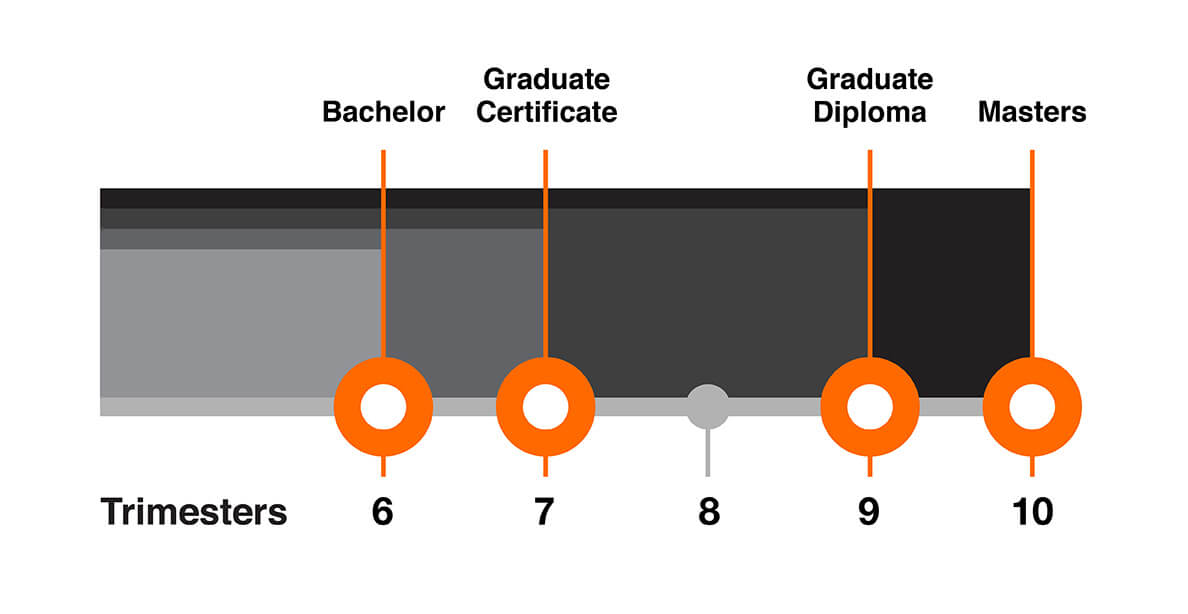
Easy transition into postgraduate courses
SAE Bachelor Degrees are structured in an integrated course framework.
This means that when you complete an SAE Bachelor of Music you will be awarded the maximum credit points available, providing you with the opportunity to seamlessly transition into the higher-level postgraduate qualifications if you choose to do so.
CREDIT AND RECOGNITION OF PRIOR LEARNING
SAE may recognise your prior learning and may grant credit towards satisfying the requirements for a higher-level program. This is applied where previous learning is considered equivalent to the content and learning outcomes prescribed for units within the program.
For full details, please refer to SAE's policy on recognition of prior learning and credit transfers.
